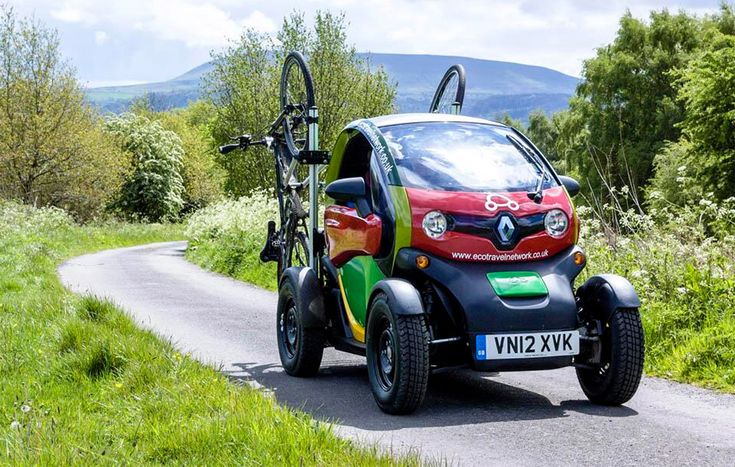
Introduction
The importance of eco vehicles and eco-tourism cannot be overstated in today’s world, where environmental conservation and sustainable practices are crucial for the future of our planet. This article explores the background, key concepts, main discussion points, case studies, current trends and developments, challenges or controversies, future outlook, and conclusion surrounding the integration of eco vehicles in eco-tourism.
Historical Background
Evolution of eco vehicles
Eco vehicles have come a long way since their inception, with advancements in technology and a growing awareness of the need for sustainable transportation. From the early days of electric cars to the emergence of hybrid vehicles, eco vehicles have gradually gained popularity in various industries, including eco-tourism.
Emergence of eco-tourism
The concept of eco-tourism, which focuses on responsible travel to natural areas while conserving the environment and improving the well-being of local communities, has gained significant attention over the years. With a rise in environmental consciousness among travelers, the demand for eco-friendly transportation options has also increased.
Key Concepts and Definitions
Eco vehicles – definition and types
Eco vehicles encompass a wide range of environmentally friendly modes of transportation. These include electric vehicles (EVs), hybrid vehicles, hydrogen fuel cell vehicles, and vehicles powered by alternative fuels such as biodiesel or compressed natural gas. The common goal of these vehicles is to minimize carbon emissions and reduce the overall environmental impact of transportation.
Eco-tourism – definition and principles
Eco-tourism refers to responsible travel to natural areas that conserves the environment, sustains the well-being of local communities, and involves interpretation and education. The principles of eco-tourism include minimizing impacts on the environment, building awareness and respect, providing positive experiences, and supporting local conservation efforts.
Main Discussion Points

Point 1: Benefits of eco vehicles in eco-tourism
Reduction of carbon footprint
Eco vehicles play a vital role in reducing the carbon footprint of the tourism industry. By utilizing electric or hybrid vehicles, eco-tourism operators can significantly decrease carbon emissions, contributing to climate change mitigation and the preservation of natural resources.
Preservation of natural resources
Eco vehicles help conserve natural resources by reducing dependency on fossil fuels. With sustainable transportation options, eco-tourism destinations can protect their unique ecosystems and minimize negative impacts on air and water quality.
Promotion of sustainable practices
The integration of eco vehicles in eco-tourism operations promotes sustainable practices throughout the industry. By adopting environmentally friendly transportation options, tour operators inspire other stakeholders to follow suit, contributing to the overall sustainability of the tourism sector.
Point 2: Integration of eco vehicles in eco-tourism operations
Use of electric or hybrid vehicles for transportation
Eco-tourism destinations can incorporate electric or hybrid vehicles into their transportation systems. These vehicles not only reduce emissions but also provide a quieter and smoother ride, enhancing the overall visitor experience.
Implementation of eco-friendly tour activities
To further promote eco-tourism principles, operators can design tour activities that align with sustainable practices. For example, walking or cycling tours, wildlife observation from electric safari vehicles, or boat tours powered by renewable energy sources all contribute to a more sustainable and authentic travel experience.
Collaboration with local communities for sustainable tourism initiatives
Engaging local communities in sustainable tourism initiatives is crucial for the success of eco-tourism. By involving community members in the operation and maintenance of eco vehicles, destinations can empower locals, create employment opportunities, and foster a sense of ownership and pride.
Point 3: Economic advantages of eco vehicles in eco-tourism
Cost savings in fuel consumption
Eco vehicles offer long-term cost savings for eco-tourism operators. With lower fuel consumption and maintenance costs compared to traditional vehicles, operators can allocate resources to other sustainable initiatives and provide a competitive advantage in the market.
Marketing and branding opportunities
The use of eco vehicles in eco-tourism provides excellent marketing and branding opportunities. Travelers increasingly seek environmentally responsible options, and promoting the use of eco vehicles can attract environmentally conscious tourists, enhance the destination’s reputation, and differentiate it from competitors.
Attraction of environmentally conscious tourists
Eco vehicles can serve as a magnet for environmentally conscious tourists who prioritize sustainable travel experiences. By offering eco-friendly transportation options, eco-tourism destinations can attract a niche market segment that values environmental conservation and sustainable practices.
Case Studies or Examples
Eco vehicle usage in eco-tourism destinations
Case study 1: A nature reserve using electric vehicles for guided tours
A renowned nature reserve has successfully incorporated electric vehicles for guided tours within the park. The use of electric vehicles not only minimizes carbon emissions but also allows visitors to experience wildlife up close without disturbing the natural habitat.
Case study 2: A sustainable resort utilizing biofuel-powered vehicles for transportation
A sustainable resort has implemented a fleet of biofuel-powered vehicles for guest transportation. This initiative not only reduces greenhouse gas emissions but also supports the local economy by utilizing locally sourced biofuels.
Successful eco-tourism initiatives with eco vehicles
A community-based eco-tourism project using solar-powered vehicles
A community-based eco-tourism project has introduced solar-powered vehicles for transportation. This initiative provides sustainable transportation options and generates renewable energy, contributing to the overall sustainability of the community.
A wildlife sanctuary using electric safari vehicles
A wildlife sanctuary has incorporated electric safari vehicles for wildlife viewing tours. This not only reduces noise pollution but also provides a more intimate and sustainable experience for visitors while minimizing disturbance to the animals.
Current Trends or Developments

Advancements in eco vehicle technology
Advancements in eco vehicle technology, such as improved battery efficiency and charging infrastructure, have paved the way for more widespread adoption of eco vehicles in the tourism industry. These developments make eco vehicles more reliable, accessible, and attractive to both operators and tourists.
Growing demand for sustainable tourism experiences
As travelers become more environmentally conscious, there is a growing demand for sustainable tourism experiences. Eco vehicles offer a tangible solution to meet this demand and provide travelers with guilt-free transportation options that align with their values.
Research findings on the impact of eco vehicles in eco-tourism
Research on the impact of eco vehicles in eco-tourism confirms the positive outcomes of their integration. Studies have shown that eco vehicles significantly reduce carbon emissions, enhance visitor satisfaction, and contribute to the overall sustainability of eco-tourism destinations.
Challenges or Controversies
Infrastructure limitations for eco vehicles
Despite the numerous benefits of eco vehicles, one of the significant challenges is the lack of adequate infrastructure, such as charging stations for electric vehicles. The limited availability of infrastructure can hinder the widespread adoption of eco vehicles in eco-tourism destinations.
Perception and acceptance of eco vehicles by tourists and local communities
The perception and acceptance of eco vehicles by tourists and local communities vary. Some tourists may still prefer traditional vehicles or may have concerns about the reliability or range of eco vehicles. Educating tourists and local communities about the benefits and capabilities of eco vehicles is crucial for their wider acceptance and adoption.
Potential conflicts between eco-tourism and local cultural practices
Integrating eco vehicles in eco-tourism operations may sometimes conflict with local cultural practices or traditions. Balancing the needs of eco-tourism with respect for local customs and cultural sensitivities is essential to ensure sustainable and mutually beneficial partnerships.
Future Outlook
Potential growth and expansion of eco vehicle use in eco-tourism
The future of eco vehicles in eco-tourism looks promising, with the potential for significant growth and expansion. As technology continues to advance, eco vehicles will become more efficient, affordable, and accessible, making them an increasingly attractive option for eco-tourism operators worldwide.
Integration of renewable energy sources in eco vehicles
The integration of renewable energy sources, such as solar or wind power, in eco vehicles will further enhance their sustainability. This advancement will not only reduce the carbon footprint of eco-tourism operations but also contribute to the overall renewable energy transition.
Collaboration between industry stakeholders for sustainable tourism practices
Collaboration between eco-tourism operators, vehicle manufacturers, governments, and local communities is crucial for the continued development and implementation of sustainable tourism practices. By working together, these stakeholders can create a more sustainable future for eco vehicles in eco-tourism.
Conclusion
In conclusion, the integration of eco vehicles in eco-tourism offers numerous benefits, including the reduction of carbon footprint, preservation of natural resources, and promotion of sustainable practices. Through case studies and examples, we have witnessed successful initiatives that showcase the potential of eco vehicles in eco-tourism. Despite challenges and controversies, the future outlook for eco vehicles in eco-tourism is promising, with significant growth and expansion expected. It is essential for industry stakeholders to collaborate and embrace sustainable tourism practices for a greener and more responsible future.




